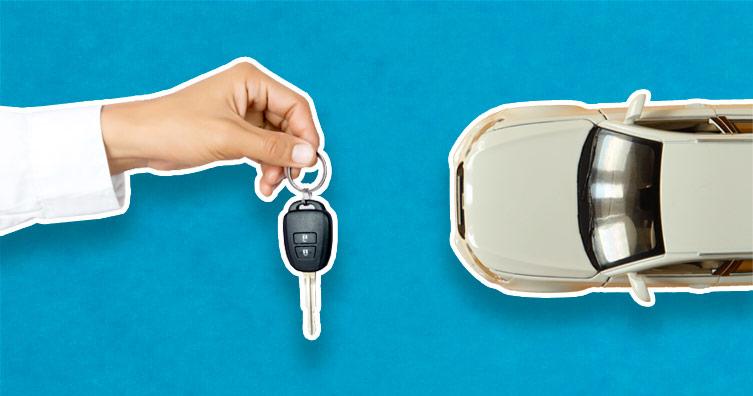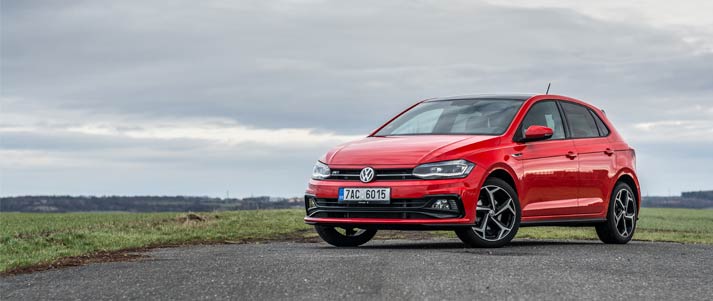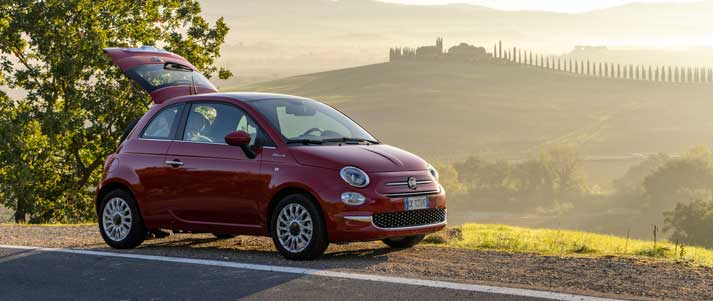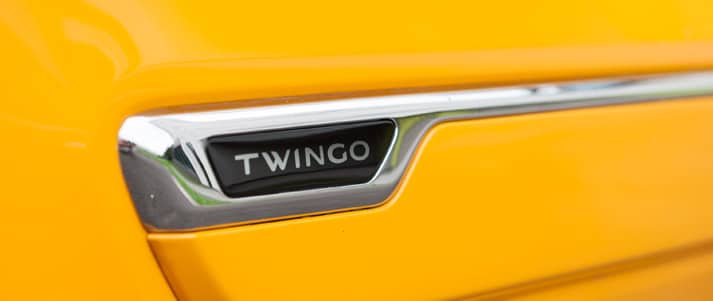10 best first cars for new drivers in 2025
Looking for your first car? We've researched the most efficient, reliable and affordable cars for new drivers to show you what to look for.

Credit: KarinaKo, CHAINFOTO24 – Shutterstock
Once you've finished your driving lessons and passed your test, you probably can't wait to get on the road with your own set of wheels. Having your own car gives you a ton more independence and freedom – particularly if you're based in the countryside or the suburbs.
But with so many car brands and models to choose from, where do you even start? Cars aren't exactly cheap, so you want to make sure your first car will last you long enough and won't break the bank.
Below, we'll share the best cars for first-time drivers based on size, affordability, safety and more.
What's in this guide?
What to look for in a first car
Here are some of the most important things to consider when buying your first car:
- Running costs – Before deciding whether to buy a car or not, you should consider all the costs that come with owning a car. It's not just the price of the car and the petrol. Think of the parking fees, maintenance costs, MOTs, taxes, breakdown cover and insurance.
- New or used – When buying a car, you don't have to buy a brand-new one. It's usually a much better choice to buy a used car as they're a fraction of the price. New cars also depreciate in value very quickly, so it's often better to put your money elsewhere. Make sure you read our guide to haggling to get the best deal when buying a used car.
- Insurance costs – Car insurance is notoriously expensive for new drivers, but it could get even more expensive depending on what car you drive. Every car is placed in a certain insurance group (1–50). The cost of the insurance can go up depending on what group they land in. You can check what insurance group a car falls into on Compare The Market.
- Fuel efficiency – The fuel efficiency of a car is indicated by the MPG (miles per gallon). This shows how many miles a car can drive per gallon of fuel on average. While it also depends on your driving style, weather conditions and traffic, the average MPG is still a good indication as to whether the car is efficient or not.
- Safety – Especially when buying a second-hand car, checking the vehicle history for any red flags regarding safety is crucial. For example, has the car been in any accidents? You can also check the overall safety of a car on Euro NCAP.
- Size – Consider the size of the car too. Will there be enough space to park it outside of your student accommodation/parents' house? If you're planning to mainly drive inside the city centre, it's probably best to go for a smaller car.
Best cars for new drivers
Here are the best cars for first-time drivers:
-
Peugeot 208
- Average MPG: 44.3 – 73.6
- Average cost (new): £18,270 – £38,000
- Pros: Excellent fuel efficiency and cheap to run
- Cons: Minimal rear seat space.
The Peugeot 208 is a great first car due to its compact size and incredible fuel efficiency. If you’re looking for a car that's cheap to run, this is definitely one to consider.
As it's a small car, it doesn't have a ton of rear seat space – but still enough to drive a few of your friends around.
All 2019 models and up also include rear parking sensors. Parking should already be a breeze with the size of this car, but the sensors make it even easier – ideal if you have to park on busy streets near where you live.
And if you're after an electric car, the Peugeot e-208 is the all-electric version of this car. A full charge will get you around 215 miles.
-
Volkswagen Polo

Credit: tomas devera photo – Shutterstock
- Average MPG: 42.8 – 57.6
- Average cost (new): £20,500 – £28,000
- Pros: Spacious and reliable
- Cons: Larger than other cars on this list.
If you're looking for a dependable and practical car, the Volkswagen Polo could be a good choice. This Volkswagen staple has certainly stood the test of time.
While it's definitely not the smallest car on this list, it's still compact enough for driving effortlessly through cities. The newer models even have a Driver Assistance Package, including parking assistance.
The spacious interior makes driving longer distances far more comfortable. This is great for road trips to neighbouring university towns to see your friends or if your family live further away.
-
Hyundai i10
- Average MPG: 49.6 – 56.5
- Average cost (new): £15,530 – £19,430
- Pros: Great for driving in cities and cheaper insurance
- Cons: Optional automatic gearbox is reported to cause slipping issues.
Coming first in Autocar's list for best city cars in 2024, the Hyundai i10 is undoubtedly an excellent choice.
At only 3.7 meters long, it's the best small car for new drivers. Thanks to its compact size, it's ideal for tight parking spots at uni or in the city. Even though it looks small, the car comfortably fits five adults. It's perfect for driving your friends or housemates on a weekend getaway or for a big food shop.
One of the downsides of this car is the optional automatic gearbox. As there have been some reports of them not changing gears properly or causing slipping when changing gears, it may be better to stick with the manual gearbox.
However, this car is also placed in one of the lower insurance groups, helping you stretch your budget a little bit further compared to more expensive cars. It's definitely one worth considering.
Don't forget to consider older models or cars that aren't in production anymore when looking at second-hand cars. The Ford Fiesta, Toyota Aygo and Citroen C1, for example, make for great first cars. And if you can find them used, you can usually get them for a low price too. -
Toyota Yaris
- Average MPG: 57.3 – 91.1
- Average cost (new): £22,640 – £29,240
- Pros: Reliable and cost-effective
- Cons: Small boot.
The Yaris has been Toyota's best-selling model in the UK for years. Being a reliable and cheap-to-drive car, it's also a great choice.
The Toyota Yaris has an efficient MPG and the maintenance costs are relatively low, making it one of the best cheap cars to drive.
It's still not the biggest car, making it perfect for driving in and around cities. And since the Toyota Yaris has been around for years, there are often quite a few decent second-hand models up for grabs.
-
Fiat 500

Credit: Victor Maschek – Shutterstock
- Average MPG: 41.5 – 61.4
- Average cost (used): £5,500 – £16,000
- Pros: Compact and stylish
- Cons: Noisy at motorway speeds and cramped interior.
The Fiat 500 has been one of the best small cars for new drivers for years. Its stylish, retro charm has a lot of personality. But on top of that, the Fiat 500 is compact and perfect for driving and parking in the city.
There is even an all-electric Fiat 500 available. With a range of up to 199 miles, it's ideal for driving around your university town.
However, the Fiat 500 is a small car, and you can definitely feel that on the inside. On top of that, it can get a bit noisy when driving fast.
-
Kia Picanto
- Average MPG: 42.2 – 60.1
- Average cost (new): £16,170 – £18,050
- Pros: Compact and reversing camera
- Cons: The basic engine can feel slightly strained at high speeds.
As you probably have noticed so far in this guide, the majority of the cars we recommend are city cars. As a new driver, you're unlikely to be driving up and down the country very often, so a smaller car that's easy to manoeuvre and costs less to run is a great pick.
The Kia Picanto fits these criteria perfectly. Again, since it's a smaller car, the fuel efficiency is much better compared to other options. They're excellent value for money in the long run.
Its small size makes it easy to park, and the Picanto 3 model version and up even come with a reversing camera.
-
Vauxhall Corsa
- Average MPG: 45.6 – 70.6
- Average cost (new): £17,000 – £28,180
- Pros: Durable and spacious
- Cons: Higher-spec models are expensive for the extra features you get.
The Vauxhall Corsa is a popular car, not just for new drivers. It's one of the best-selling models by Vauxhall, which is due to its reliability and sleek design. It's also relatively quiet at higher speeds.
It may not offer quite as much interior space as some competitors like the Volkswagen Polo, but the Corsa still provides enough room for passengers to travel comfortably. It has a good balance between compactness and comfort.
It also comes with a well-sized boot – although the Corsa Electric has much less space in the boot due to the batteries taking up space.
-
Renault Twingo

Credit: Domagoj Kovacic – Shutterstock
- Average MPG: 45.6 – 48.7
- Average cost (used): £1,100 – £6,500
- Pros: Rear-engined and low insurance group
- Cons: Noisy at higher speeds.
The Renault Twingo's engine is placed in the rear of the car, making it a compact vehicle with excellent traction and braking. While it's probably not the best pick for taller drivers, the Twingo is still a great choice for first-time drivers.
As a good city car, the Twingo is easily manoeuvrable. However, the noise levels do increase quite a bit at higher speeds, which is something to keep in mind if you plan to take longer trips on the motorway.
A plus of the Renault Twingo is that it falls in a low insurance group, allowing you to save a chunk of money every year.
-
Skoda Fabia
- Average MPG: 46.7 – 56.7
- Average cost (new): £21,230 – £23,100
- Pros: Spacious
- Cons: Limited engine options.
The Skoda Fabia is known for being spacious which can be handy when you're moving to uni or fancy a road trip with your new friends.
A downside of this car is the limited engine options – it doesn't have mild hybrid or plug-in technology and some owners have reported worrying engine noises.
However, it's a relatively cheap car for students to buy and run. You can buy a used Skoda Fabia for less than £1,000.
-
SEAT Ibiza
- Average MPG: 42.2 – 61.4
- Average cost (new): £22,500 – £23,700
- Pros: Easy to drive
- Cons: Basic quality.
The SEAT Ibiza is an easy-to-drive car that is ideal for first-time drivers. It's relatively small which makes it easy to manoeuvre into small spaces if needed, but still comes with lots of room and a spacious boot.
The car also has an eight-inch touchscreen with Bluetooth, smartphone connectivity and a built-in sat nav to help you get from A to B.
Is buying a car worth it?
Before you decide whether buying a car is worth it for you, make sure you know the main reasons to buy a car or to wait.
Reasons to buy a car
- Independence – Getting your own car gives you a ton of extra independence as you won't have to rely on lifts anymore. It's particularly handy if you live somewhere without good public transport connections.
- Job opportunities – Knowing how to drive and already owning a car can help you in your graduate job search. Some jobs require you to drive a lot so this can put you ahead of other candidates.
- Saving time – If you live a bit more rural and you're planning on using your car to commute to university, you could be saving a lot of time. Public transport is a great option, but it's not always the fastest or most reliable way to travel.
Reasons against buying a car
- Costs – Buying a car isn't cheap, and running one can add a serious strain on your finances. It may be worth checking what other options you have first, including bus passes.
- Car depreciation – If you buy a brand-new car, its value will drop significantly in the first few years. On average, it drops 15% – 30% during the first year, and up to 50% when it reaches three years or more.
- Frequency of use – Before you decide to buy a car, it's worth checking whether you really need one. If you're only planning to use it for a few weekend trips or spending Christmas at home, train tickets can turn out cheaper. However, if you're planning to commute to university every day from your parents' house, it could be a good choice to buy a car.
After you've got yourself a car, make sure to read our tips on how to save money on driving.








